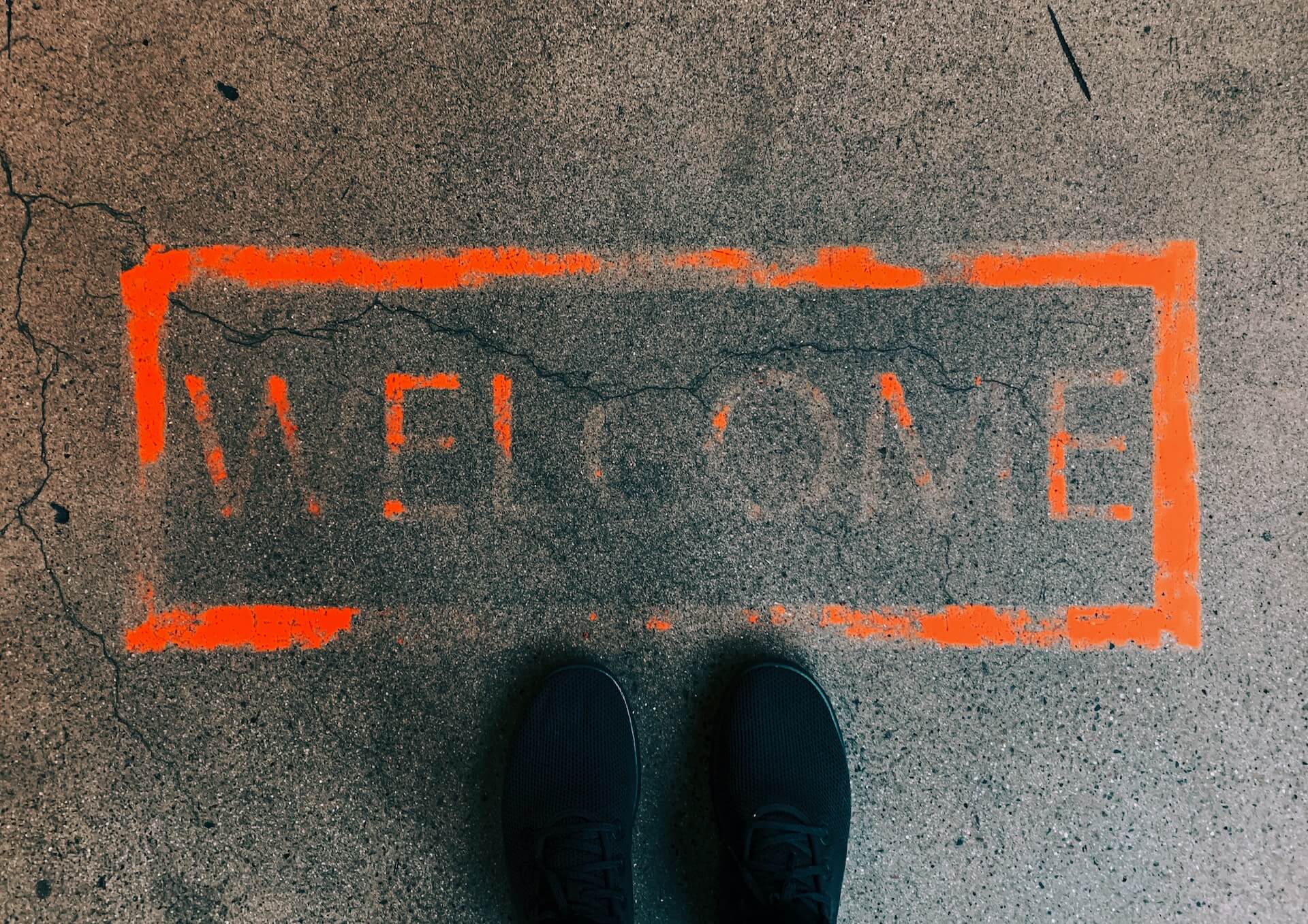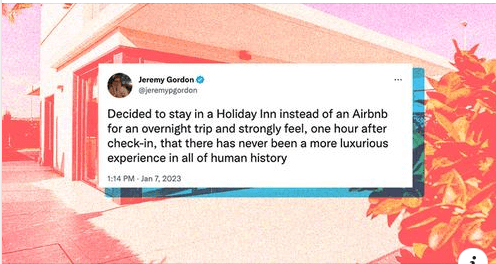Revisiting short-term rentals
The Internet may be anarchy, but hosts can still cauterize risk.

It's been amusing to witness the modern-day iteration of the temporary flop evolve since it was started on our home turf. As an international destination, San Francisco became a magnet for short-term rentals.
We recall quipping at a presentation to the San Francisco Association of Realtors that with thousands of short-term rentals in the shadows, only around 40 were registered with the city.
The audience laughed at the time. Short-term rentals were the Wild West then. Today, it's no laughing matter.
The city's Planning Department was not amused at what they called "illegal hotels" and litigation ensued. Airbnb capitulated by agreeing to transparency by sharing information about the relationships between hosts and guests.
There were many legal dustups along the way and Airbnb was not sheepish. With an army of lawyers, it defended an array of lawsuits and even brought the fight to municipalities that stood in the way of expansion. The legal team is battle-tested, with some scrapes and bruises with wins and losses in their column. The platform also became a flash point of discrimination as hosts summarily denied guests based on race and other biases.
After being sued, Airbnb's predictable argument under the Communications Decency Act was basically, "it wasn't me." That law gives Internet companies immunity for any improper, illegal, or nefarious actions of users.
At some point, this deflection of blame wore thin, with Airbnb being accused of being complicit in the actions of its hosts. With rampant discrimination on the platform, it launched a campaign to fight discrimination and build inclusion, with actor Danny Glover cast into the role of an ambassador.
Daniel weighs in on the 'Airbnb Mansion' party'
After five young lives were sadly lost after a one-night rental in Orinda turned into a Halloween horror with a hail of gunfire, Daniel told FOX KTVU that while the home-sharing website made a good-faith effort in cracking down on rogue hosts and guests, the renting of a rental in a suburban community smelled fishy and that a lawsuit against multiple defendants would result after the tragedy.
Despite its attempts to do a makeover and become good corporate citizens, the news has been plastered with stories of scam listings, short-term rental guests wreaking damage, hosts spying on their guests, and all manner of other dysfunction.
A love-hate relationship?
Daniel told the San Francisco Chronicle that the Orinda shooting illustrates a "perfect storm of the risk you face when you arbitrage your house on Airbnb. You may be 'sharing' with people who you don't know from a hole in the head."
We are aware, however, of homeowners who love listing their homes on Airbnb for a steady stream of rental income. We will not discourage homeowners from availing of these short-term rental platforms but can only offer some cautionary words.
When everything is going well, it's great. When something goes bad, it's awful. The analogy is when a landlord has used an unlicensed handyman for repairs. Months and years go by without incident. All of a sudden, the handyman does an HVAC job and tenants get carbon monoxide poisoning as a result of shoddy work. Colossal liability awaits.
Similarly, owners who are renting out their properties on Airbnb should have a solid grasp of the laws surrounding these rental relationships and future-proof their short-term rental business.

The new sharing economy raises many questions about the role of property, tort, and contract law. Daniela Cronembold is an attorney we closely work with who can provide clarity in this confluence of question marks.
![]()
Herself the owner and operator of Airbnb and Vrbo listings in Hawaii, Daniela faces unique challenges with guests who get buyer's remorse with centipedes and other rich insect life on the island, along with the possibility of inclement weather, including hurricanes. In response, she prepares an ironclad agreement with would-be guests that, among other things, has an ironclad cancelation policy.
It's possible that there are competing contracts - one used in a standard Airbnb agreement and the other a private agreement entered into by the host and the guest.
When in conflict, it's not immediately clear which contract supersedes the other without attorney review. Regardless, we want to be clear about mutual expectations between both parties. Our strong preference is that there is no ambiguity in this regard. If the contract is later deemed to be unenforceable, there is value in having both the host and the guest on the same page.
Whoever said politics are local must have had short-term rentals in mind. Different locales have their own unique ordinances and rules governing the modern-day version of the temporary flop.
Many residents and politicians have limited property sharing by usage, number limitations, operations, and licensing requirements because they do not want their community overrun by non-locals and simply want peace and quiet. In Daniela's agreement with prospective guests, she mentions a 9:30 PM noise ordinance.
There is a patchwork of local rules to navigate and Bornstein Law can assist so that you remain in good standing with neighbors, technological platforms, and the community at large.
Are hosts properly covered by insurance?
Airbnb has its own insurance-like vehicles to pay claims, but there are a plethora of terms and conditions. It should come as no surprise that there are many loopholes and testaments by users that attempts to collect claims are stonewalled. An attorney well-versed in short-term rentals can review your insurance coverage to see if you are adequately protected and, if not, how we can plug this hole.
Under premises liability law, an owner has a duty of care and so certainly, hosts will need to ensure that the property is in a safe condition. Failure to do so can not only invite a costly lawsuit but even lead to criminal charges when there was a foreseeable threat.
Privacy concerns
There are two conflicting goals of Airbnb hosts and guests. The host has a natural propensity to "snoop" and monitor how their property is being used, while guests have an entitlement to quiet enjoyment.
We were intrigued to come across a viral tweet related to Airbnb. Citing fees, rules, random pop-ins, and the ominous feeling of being watched by the host, the author said there was great comfort in staying at a Holiday Inn instead of being under the scrutiny of an Airbnb host. At least hotels know how to leave guests alone without asking for anything but cold hard cash.

A Viral Tweet About AirBnb Has People Roasting The Brand All Over Again
Hosts need to strike a balancing act between being the eyes and ears of their property and allowing guests to enjoy their stay without fear of intrusion. This balance has been made all the more delicate with the advent of technology that can record people in every moment, however embarrassing.
Other questions abound, but as you can see, another voice can be helpful for forward-thinking hosts trying to make sense of it all.
It's been said that the Internet is the largest experiment in anarchy humankind has ever embarked on and there is no greater example of that than Airbnb and other home-sharing platforms. Yet the risks can be cauterized, uncertainty reduced, and conflicts resolved as painlessly as possible, with proper legal guidance.
